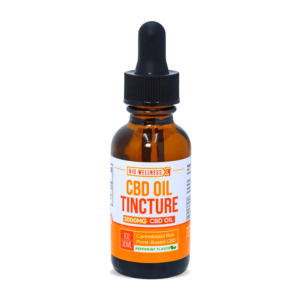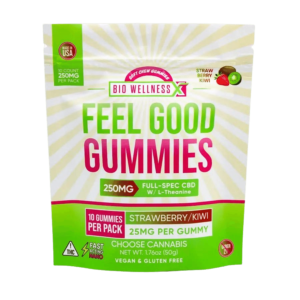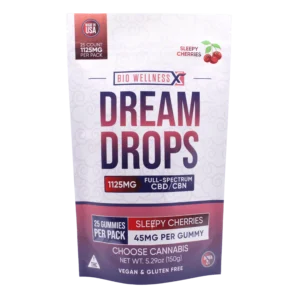key points
CBD is a popular natural remedy for various ailments, but does it trigger the munchies? We’ve all heard about people snacking after using cannabis and wondered if CBD has the same effect. Let’s explore what science says about CBD and appetite stimulation and discuss its potential benefits and proper use.
Curious if CBD can help with hunger pangs? Let’s find out.
Does CBD Give You Munchies?
Before discussing whether CBD helps with appetite, let’s review some of its basics, such as its origin and benefits.
CBD, or cannabidiol, is one of over 100 cannabinoids found in hemp and cannabis plants. Unlike THC (tetrahydrocannabinol), CBD does not have psychoactive effects, meaning it won’t make you feel “high.” Instead, it is known for its potential health benefits, including reducing inflammation, relieving discomfort and anxiety, and even aiding in the treatment of certain types of seizures.
Cannabidiol (CBD) is a natural compound derived from the Cannabis sativa plant. It has gained popularity for its therapeutic properties and non-intoxicating effects.
Taking CBD may help alleviate symptoms of chronic physical discomfort and reduce inflammation, anxiety, and depression by interacting with the body’s endocannabinoid system, which helps maintain balance. Additionally, CBD may improve sleep quality for those with insomnia, stress, or medical conditions like PTSD or fibromyalgia.
As CBD gains popularity for its health benefits, many people are curious about its effects on appetite and whether a person can get “the munchies” from CBD. Let’s explore how CBD might influence your appetite.
What Are The Munchies?
The munchies are a common side effect of smoking cannabis, but what about CBD? To understand this, let’s explore what the munchies are and how CBD affects appetite.
The “munchies” refer to a strong craving for food that some people experience after using cannabis products like marijuana or hemp. This happens because of THC (tetrahydrocannabinol), an active compound in cannabis. THC binds to receptors in the brain that regulate hunger, making you feel hungrier than usual.
How Does CBD Affect Appetite?
Cannabidiol (CBD), a compound found in cannabis plants, doesn’t bind to the same receptors as THC and doesn’t have psychoactive effects. Instead, CBD interacts with different parts of the endocannabinoid system, helping to regulate mood, aches and pains, sleep, appetite, and more. While research is ongoing, early studies suggest that CBD may reduce cravings rather than increase them, unlike THC.
Since CBD doesn’t affect the brain’s hunger centers like THC does, using pure CBD is unlikely to cause intense cravings, often referred to as “the munchies.” However, products containing both THC and CBD might lead to increased hunger due to the THC content. So, while pure CBD likely won’t trigger an uncontrollable urge for snacks, it might be beneficial for symptoms like nausea or loss of appetite.
Some research suggests that CBD might not directly cause munchies, but its potential for appetite control and improved digestion makes it a promising option for those aiming to manage their appetite or enhance their overall health.
CBD can help relieve nausea, calm the nervous system, and improve the digestive tract. By reducing nausea and physical discomfort, because if you feel less nauseated you might eat more. As a result, it is commonly used by individuals dealing with cancer, chronic achey joints, and other medical conditions.
Potential Benefits of Using CBD for Appetite Control
Cannabis has a long history of being used to treat various health issues. CBD offers all the benefits without the high, as it does not cause psychoactive effects like THC. One area where CBD shows promise is in appetite control.
Weight Loss and Appetite Management
CBD might help with appetite control, which can be beneficial for those trying to lose weight. It can reduce cravings and increase feelings of fullness after meals, aiding adherence to a healthy diet and helping to achieve weight loss goals. Some research also suggests that CBD can boost energy levels, supporting weight loss efforts over time.
Enhanced Digestion and Nutrient Absorption
Regular use of CBD can improve digestion and support nutrient absorption due to its anti-inflammatory properties. This can lead to more efficient use of the nutrients from food and help maintain overall body balance.
Stress Reduction and Improved Sleep
CBD can also lower stress levels thanks to its calming effects on the mind and body. This can improve sleep quality and promote relaxation, helping you wake up feeling refreshed.
In summary, CBD offers potential benefits for appetite control, including weight management and better digestion.
How to Use CBD for Appetite Control
The ideal CBD dosage for managing appetite depends on personal needs and tolerance. Begin with a low dose, such as 5-10mg per day, and gradually increase until you find the optimal amount. Adjust based on your response to ensure effectiveness.
Recommended CBD Products for Appetite Control:
CBD Oil or Tinctures:
CBD oils and tinctures are versatile and easy to dose. You can start with a few drops under your tongue and adjust as needed. Look for products with clear labeling and third-party testing.
CBD Capsules:
Convenient for precise dosing, capsules typically come in predetermined doses, making it easier to monitor your intake.
CBD Edibles:
Gummies and other edibles provide a tasty way to consume CBD. They usually come in consistent doses, though the onset of effects may take longer compared to oils and capsules.
CBD Vapes:
For faster effects, CBD vapes can be useful. However, dosing can be less precise, so start slow and monitor how you feel.
Full-Spectrum CBD Products:
These contain other cannabinoids and terpenes that may enhance the appetite-stimulating effects of CBD through the entourage effect. Be sure to choose products with minimal THC if you want to avoid psychoactive effects.
When choosing a product, consider factors such as the type of CBD (isolate, broad-spectrum, full-spectrum), the form of the product, and any additional ingredients that may support appetite control. Always opt for reputable brands with transparent sourcing and testing practices.
Final Thoughts: Does CBD Give You the Munchies
CBD and THC have different effects on appetite. THC is known for increasing hunger and by taking it you basically ‘get the munchies,’ while CBD may help regulate appetite without causing intense cravings. Research suggests that CBD may aid in weight management and support digestive health. It’s important to start with a low CBD dose and adjust gradually. CBD products such as oils, capsules, edibles, and vapes offer various consumption methods, each with its own benefits. Whether it’s for managing chronic physical discomfort, reducing inflammation, or promoting overall well-being, CBD offers a promising option without the intoxicating effects of THC.
By better understanding how CBD interacts with the body and its potential benefits, individuals can make informed decisions about incorporating CBD into their daily routine for improved health and wellness. Always consult with a healthcare professional before starting any new supplement regimen, especially if you have existing health concerns or are taking medications.
If you’re still wondering whether CBD makes you hungry, the short answer is no. However, it could help your body maintain homeostasis, which in turn might support a regular appetite. For most people, fine-tuning and balancing the endocannabinoid system is precisely what it takes to achieve optimal metabolic health.

Legal Disclaimer:
By reading this information presented, you agree to release the author of any liability that comes from using this data. This post contains no legal advice. Claims about cannabinoids have not yet been approved by the FDA. Cannabis laws and regulations are subject to change. Read the full legal disclaimer here.
Other Topics You Might Want To Read:
- Delta-8 vs. Delta-10 For Pain: Which Works The Best?
- CBD for Vertigo – Discover the Potential
- Finding the Best CBN Gummies for Sleep Support
- What Are the Best Forms of CBN Available Today?
- Organic 50mg Delta-8 Gummies: Benefits and Effects
- CBG and CBD: Differences and Similarities
- What is Full Spectrum THC?
- 100mg Delta-8 THC Gummies Review From BioWellnessX
- Indica vs Sativa Edibles: What’s the Difference?
- Delta 8 Edibles Review And Where to Buy Them!
- Is Delta-8 or CBD Better For Pain? The Top 5 Differences!
References:
- Cannabidiol and Intestinal Motility
- Delta-8-THC: Delta-9-THC’s nicer younger sibling?
- Consumer Experiences with Delta-8-THC
- Hemp Production and the 2018 Farm Bill – 07/25/2019 | FDA
- The Controlled Substances Act (dea.gov)
FAQs About CBD and the Munchies
Unlike THC, which stimulates appetite, CBD may help regulate appetite by interacting with cannabinoid receptors in the body’s endocannabinoid system.
CBD affects appetite differently than THC primarily because it does not directly stimulate hunger. While THC binds to cannabinoid receptors in the brain, and produces the well-known cravings for sweet and fatty foods, CBD interacts with the body’s endocannabinoid system in a way that may help regulate appetite without causing a significant increase in hunger. Thus, CBD is often considered more for potential appetite regulation rather than stimulation.
CBD can improve digestion by promoting regular bowel movements and aiding in nutrient absorption on a daily basis. It may also reduce stress and promote better sleep quality.











